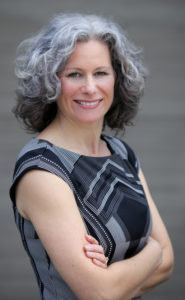BC has just unveiled its much anticipated proposed Family Law Act that makes the best interests of the child the sole consideration in deciding matters affecting the child. The proposed law Bill 16 – 2011 would require the child’s views to be considered “unless it would be inappropriate to consider them” in determining their best interests. This is a subtle but important shift as the new law presumes that the child’s views will be sought and considered, arguably placing an evidentiary burden on those suggesting it is inappropriate to hear from the child.
While the new law is a step in the right direction, resources are needed to actually implement its intent, consistent with the rights of all BC children. For example, while the Province currently funds 7 family justice counsellors to listen to children and complete “Views of the Child Reports”, this service does not reach every child in BC and there is a waiting time of 2 – 9 months from the time an order is made to the time the Report is in hand. The BC Hear the Child Society is working with the International Institute for Child Rights and Development with funding from the Vancouver Foundation that helps educate and train justice professionals to listen to children and address this gap.
Below is the proposed provision relating to best interests of the child.
Division 1 — Best Interests of Child
Best Interests of Child
37 (1) In making an agreement or order under this Part respecting guardianship, parenting arrangements or contact with a child, the parties and the court must consider the best interests of the child only.
(2) To determine what is in the best interests of a child, all of the child’s needs and circumstances must be considered, including the following:
(a) the child’s health and emotional well-being;
(b) the child’s views, unless it would be inappropriate to consider them;
(c) the nature and strength of the relationships between the child and significant persons in the child’s life;
(d) the history of the child’s care;
(e) the child’s need for stability, given the child’s age and stage of development;
(f) the ability of each person who is a guardian or seeks guardianship of the child, or who has or seeks parental responsibilities, parenting time or contact with the child, to exercise his or her responsibilities;
(g) the impact of any family violence on the child’s safety, security or well-being, whether the family violence is directed toward the child or another family member;
(h) whether the actions of a person responsible for family violence indicate that the person may be impaired in his or her ability to care for the child and meet the child’s needs;
(i) the appropriateness of an arrangement that would require the child’s guardians to cooperate on issues affecting the child, including whether requiring cooperation would increase any risks to the safety, security or well-being of the child or other family members;
(j) any civil or criminal proceeding relevant to the child’s safety, security or well-being.
(3) An agreement or order is not in the best interests of a child unless it protects, to the greatest extent possible, the child’s physical, psychological and emotional safety, security and well-being.
(4) In making an order under this Part, a court may consider a person’s conduct only if it substantially affects a factor set out in subsection (2), and only to the extent that it affects that factor.


 Family Mediator
Family Mediator